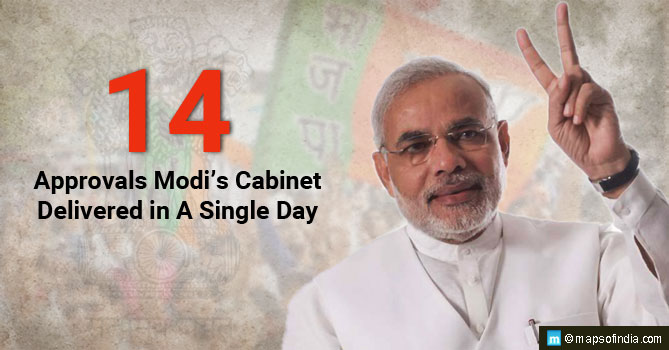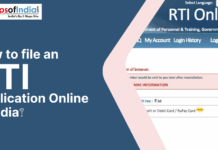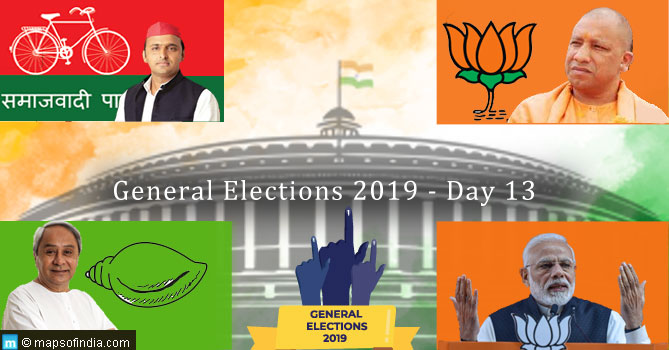
You can love him. Or you can hate him. But you can’t ignore him. Prime Minister Narendra Modi has been in news for many reasons. One of the reasons is also how he has become synonymous with action-oriented approach towards the tasks in hand. His speed towards work and his commitment towards accomplishing his goals have been much talked about.
Here we give you the brief details of all the topics that were approved by the Modi’s Cabinet in a single day i.e. 20th of November 2019 and what their benefits are.
1. Cabinet approves the National Capital Territory of Delhi (Recognition of Property Rights of Residents in Unauthorised Colonies) Bill, 2019.
Nearly 40 lakh people reside in Unauthorised Colonies located on private or public land in Delhi. Properties, whether in the form of plot of land or built up space are generally held through General Power of Attorney (GPA), Will, Agreement to Sale, Payment and Possession documents. The properties in these colonies are not being registered by registration Authorities and thereby the residents do not have any title documents in respect of such properties and the Banks and financial institutions do not extend any credit facilities in respect of said properties.
2. Cabinet approves extension/renewal of the extant Pharmaceuticals Purchase Policy (PPP) with the same terms and conditions.
Extension/renewal of the policy would help the pharma CPSUs in optimum utilisation of their existing facilities, enable them to generate revenues to pay salaries to their employees, help them in keeping the costly, sophisticated machinery in running condition resulting in higher return at the time of disposal in case of CPSUs under closure and better valuation in case of CPSUs under disinvestment.
3. Cabinet approves the Patent Prosecution Highway programme.
The said programme will initially commence between Japan Patent Office (JPO) and Indian Patent Office on pilot basis for a period of three years only. Under this Pilot programme, Indian Patent Office may receive patent applications in certain specified technical fields only, namely, Electrical, Electronics, Computer Science, Information Technology, Physics, Civil, Mechanical, Textiles, Automobiles and Metallurgy while JPO may receive applications in all fields of technology.
4. Cabinet approves establishment of the National Institute of Sowa Rigpa (NISR) at Leh.
The Institute will be an autonomous National Institute under Ministry of AYUSH with the mandate to undertake interdisciplinary education and research programmes in Sowa-Rigpa in collaboration with premier national and international Institutes and facilitate integration of different systems of medicine.
This will facilitate quality education, scientific validation, quality control & standardization and safety evaluation of Sowa-Rigpa products, standardized Sowa-Rigpa based tertiary health delivery and to promote interdisciplinary research & education of Sowa-Rigpa at undergraduate, postgraduate and postdoctoral levels.
The National Institute of Sowa Rigpa would identify the best Sowa-Rigpa treatment – including their standard procedures-within the framework of traditional Sowa-Rigpa principle and possible co-relation with bio-molecular western medicine in providing health care facilities to the general public.
5. Cabinet approves MoU between India and Finland for strengthening cooperation in the field of Tourism.
The main objectives of the Memorandum of understanding, inter alia, are:
- Establish the basis for a cooperative relationship to encourage and promote successful bilateral cooperation in the field of tourism.
- Sharing data; knowledge, expertise etc. related to tourism.
- Sharing experiences in making polices, regulation and standards in planning, implementation and development of tourism policy.
- Facilitating the identification and expansion of joint projects, pilots and partnerships between companies and organizations through visits, meetings, workshops, co-creation sessions and site evaluations.
- Exchanging best practices through workshops and study visits for experts of Finland and India on the field of cooperation.
- Encouraging development of partnerships in the context of multilateral development programs and projects of international Financial Institutions, in which both Participants have common interests.
6. Cabinet gave ex-post facto approval for the proposal that has been approved under Rule 12 of the Government of India Rules, 1961 about removing difficulty arising in giving effect to the provisions of the J&K Reorganisation Act 2019.
7. Cabinet approves Ex post facto the proposal for the MoU between India and Comoros on cooperation in the field of Health and Medicine signed on 11th October, 2019.
The Memorandum of Understanding covers the following areas of cooperation:
- Training and Capacity Building
- Exchanges of experiences
- Institutional strengthening of Hospitals; Hospital management
- Medical care in Oncology and Palliative care;
- Communicable and Non-communicable Diseases;
- Acquisition of pharmaceutical products, materials and biomedical products
- Support for the opening of three units of blood transfusion
- Support for the opening of a public health laboratory
- Support for the implementation of telemedicine
- Promotion of private investments in the field of health
- Any other area of cooperation as may be mutually decided upon
- A working group will be set up to further elaborate the details of cooperation and to oversee the implementation of this Memorandum of Understanding.
8. Cabinet gaveex-post facto approval for the order issued by the President of India to remove difficulties in the provisions of the J&K Reorganisation Act 2019.
The issue of the notification would remove the difficulties in giving effect to the provisions of the Act in application of certain laws to the Union territory of Jammu and Kashmir and Union territory of Ladakh.
9. Cabinet approves Taxation Laws (Amendment) Bill, 2019
In order to promote growth and investment, a new provision was inserted in the IT Act to provide that with effect from the current financial year 2019-20, an existing domestic company may opt to pay tax at 22% plus surcharge at 10% and cess at 4%, if it does not claim any incentive/deduction. The effective tax rate for these companies comes to 25.17% for these companies. They would also not be subjected to Minimum Alternate Tax (MAT).
10. Cabinet approves Ex post facto on the proposal that has been approved under Rule 12 of the Government of India (Transaction of Business) Rules, 1961 for the issuance of order under section 73 of J&K.
11. Cabinet approves proposal for enactment of Recycling of Ships Bill, 2019 and accession to the Hong Kong International Convention for Safe and Environmentally Sound Recycling of Ships, 2009.
The proposed Bill restricts and prohibits the use or installation of hazardous material, which applies irrespective of whether a ship is meant for recycling or not. For new ships, such restriction or prohibition on use of hazardous material will be immediate, that is, from the date the legislation comes into force, while existing ships shall have a period of five years for compliance. Restriction or prohibition on use of hazardous material would not be applied to warships and non-commercial ships operated by Government. Ships shall be surveyed and certified on the inventory of hazardous material used in ships.
Under the Bill, ship recycling facilities are required to be authorized and ships shall be recycled only in such authorized ship recycling facilities.
The Bill also provides that ships shall be recycled in accordance with a ship-specific recycling plan. Ships to be recycled in India shall be required to obtain a Ready for Recycling Certificate in accordance with the HKC.
12. Cabinet approves proposal for Mitigating financial stress being faced by the Telecom Services Sector
Department of Telecommunication will give an option to the Telecom Service Providers (TSPs) to defer payment of the spectrum auction instalments due for 2020-21 & 2021-22, either for one or both years. These deferred amounts bill be spread equally in the remaining instalments to be paid by TSPs. Interest as stipulated while auctioning of the concerned spectrum will however be charged so that NPV is protected.
13. Cabinet approves the Industrial Relations Code Bill, 2019
The Benefits are:
- Setting up of two-member tribunal (in place of one member) introducing a concept that some of the important cases will be adjudicated jointly and the rest by a single member resulting speedier disposal of cases.
- To impart flexibility to the exit provisions (relating to retrenchment etc.), for which, the threshold for prior approval of appropriate Government has been kept unchanged at 100 employees but added a provision for changing ‘such number of employees’ through notification.
- The re-skilling fund is to be utilised for crediting to workers in the manner to be prescribed.
- Definition of Fixed Term Employment and that it would not lead to any notice period and payment of compensation on retrenchment excluded.
- Vesting of powers with the government officers for adjudication of disputes involving penalty as fines thereby lessening the burden on tribunal.
14. Cabinet approves introduction of International Financial Services Centres Authority Bill, 2019 in Lok Sabha, after withdrawal from Rajya Sabha.
Currently the banking, capital markets and insurance sectors in IFSC are regulated by multiple regulators i.e. RBI, SEBI and IRDAI. The dynamic nature of business in the IFSCs necessitates a high degree of inter-regulatory coordination. It also requires clarifications and frequent amendments in the existing regulations governing financial activities in IFSCs. Hence a need is felt for having a unified financial regulator for IFSCs in India to provide world class regulatory environment to financial market participants.





